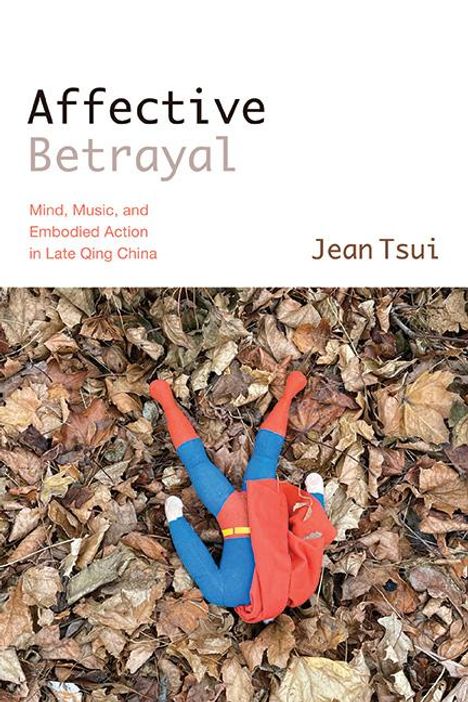Jean Tsui: Affective Betrayal, Kartoniert / Broschiert
Affective Betrayal
- Mind, Music, and Embodied Action in Late Qing China
(soweit verfügbar beim Lieferanten)
- Verlag:
- SUNY Press, 03/2025
- Einband:
- Kartoniert / Broschiert
- Sprache:
- Englisch
- ISBN-13:
- 9781438498799
- Artikelnummer:
- 12122176
- Umfang:
- 344 Seiten
- Gewicht:
- 227 g
- Maße:
- 229 x 152 mm
- Stärke:
- 25 mm
- Erscheinungstermin:
- 2.3.2025
- Hinweis
-
Achtung: Artikel ist nicht in deutscher Sprache!
Weitere Ausgaben von Affective Betrayal |
Preis |
|---|
Klappentext
Seeks to introduce an "affective turn" to the study of China's political modernization process. Affective Betrayal uses "affect" as an analytical category to explicate the fragility and fragmentation of Chinese political modernity. In so doing, the book uncovers some of the unresolved moral and philosophical obstacles China encountered in the past, as well as the cultural predicament the country faces at present. At the turn of the twentieth century, China's leading reformer Liang Qichao (1873-1929) presented modern political knowledge in musical and visual representational formats that were designed to stimulate readers' bodily senses. By expanding the reception of textual knowledge from "reading" to "listening" and "visualizing experiences," Liang generated an epistemic shift, and perhaps an all-inclusive internal intellectual, philosophical, and moral transition, alongside China's modern political reform. By tracing the marginalized academic and philosophical positions Liang sought to restore in China's incipient democratic movement, Affective Betrayal examines how his attempts to conjoin Confucian morality and liberal democracy expose hidden anxieties as well as inherent contradictions between these two systems of thought. These conflicts, besides disrupting the stability of China's burgeoning modern political order, explain why the import of modern concepts led to China's continued political impasse, rather than rationality and progress, after the 1911 revolution.



